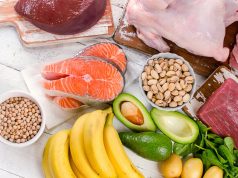In today’s fast-paced world, maintaining a balanced diet can feel like a daunting task, especially when it comes to understanding the role of fats. Often cast as the villain in the narrative of healthy eating, fats are essential nutrients that play a crucial role in our overall well-being. However, not all fats are created equal. The key is to distinguish between those that nourish our bodies and those that may hinder our health goals. This article aims to guide you through the maze of dietary fats, focusing on the best healthy fats to include in your diet. By understanding and embracing these nutrient-rich options, you can enjoy delicious meals while supporting your body’s needs. Let’s embark on this journey together, making informed choices that contribute to a healthier, happier you.
Understanding the Role of Healthy Fats in Your Well-being
Incorporating healthy fats into your diet is essential for maintaining overall well-being. These fats not only provide energy but also play a crucial role in supporting brain function, heart health, and inflammation reduction. Understanding which fats are beneficial can make a significant difference in your dietary habits and overall health.
- Avocados: Rich in monounsaturated fats, avocados help lower bad cholesterol levels while providing essential nutrients like potassium and fiber.
- Nuts and Seeds: Almonds, walnuts, chia seeds, and flaxseeds are excellent sources of omega-3 fatty acids and protein. They support heart health and are perfect as snacks or salad toppings.
- Olive Oil: A staple of the Mediterranean diet, olive oil is packed with antioxidants and anti-inflammatory properties. Use it as a dressing or in cooking to boost your meals’ nutritional value.
To help you integrate these healthy fats into your diet, consider the following quick comparison:
| Food | Type of Healthy Fat | Health Benefit |
|---|---|---|
| Avocado | Monounsaturated | Cholesterol management |
| Walnuts | Omega-3 | Heart health |
| Olive Oil | Monounsaturated | Anti-inflammatory |
By consciously choosing to include these fats in your meals, you can enjoy their numerous health benefits while also delighting your taste buds. Remember, balance is key, so aim to integrate a variety of these fats to optimize your well-being.

Identifying Nutrient-rich Sources of Beneficial Fats
Incorporating healthy fats into your diet can be a game-changer for your overall well-being. These beneficial fats not only support heart health but also enhance brain function and help maintain a balanced diet. Here are some nutrient-rich sources that can seamlessly fit into your daily meals:
- Avocados: These creamy fruits are packed with monounsaturated fats, which are known to lower bad cholesterol levels. Add slices to your salad or blend them into a smoothie for a nutrient boost.
- Nuts and Seeds: Almonds, walnuts, chia seeds, and flaxseeds are excellent sources of omega-3 fatty acids and fiber. Snack on a handful or sprinkle them over your yogurt for a crunchy twist.
- Olive Oil: A staple in the Mediterranean diet, olive oil is rich in antioxidants and healthy fats. Drizzle it over your vegetables or use it as a dressing to enhance the flavor and nutritional profile of your dishes.
Understanding which fats to include in your diet can be simplified with a quick glance at the table below:
| Source | Type of Fat | Health Benefits |
|---|---|---|
| Avocado | Monounsaturated | Reduces bad cholesterol |
| Walnuts | Omega-3 | Boosts brain health |
| Chia Seeds | Polyunsaturated | Supports heart health |
| Olive Oil | Monounsaturated | Rich in antioxidants |

Incorporating Omega-3 Fatty Acids for Heart Health
Omega-3 fatty acids are essential nutrients that play a pivotal role in maintaining heart health. These polyunsaturated fats can help reduce inflammation, lower blood pressure, and decrease the risk of heart disease. By incorporating foods rich in omega-3s into your diet, you can take a proactive step towards a healthier heart.
- Fatty Fish: Salmon, mackerel, and sardines are excellent sources of omega-3s. Aim to include these in your meals at least twice a week for optimal benefits.
- Plant-Based Options: For those following a vegetarian or vegan diet, flaxseeds, chia seeds, and walnuts are fantastic alternatives that provide these essential fats.
- Supplements: If dietary sources are insufficient, omega-3 supplements, such as fish oil or algal oil capsules, can be considered after consulting with a healthcare provider.
| Food Source | Omega-3 Content (per serving) |
|---|---|
| Salmon | 1.8g |
| Chia Seeds | 5g |
| Walnuts | 2.5g |
Remember, integrating these healthy fats into your diet is not just about enhancing your meals but also about nourishing your heart. By choosing foods rich in omega-3s, you’re not only making a delicious choice but also a heart-smart one.

Practical Tips for Balancing Fats in Your Daily Meals
Achieving a balanced intake of fats in your daily meals can be both simple and rewarding. Start by incorporating a variety of healthy fats from different sources. This not only adds flavor to your dishes but also ensures you’re getting a wide range of nutrients. Consider the following practical tips:
- Avocados: Add sliced avocados to your salads or mash them as a spread on whole-grain toast. They’re rich in monounsaturated fats and are incredibly versatile.
- Nuts and Seeds: Snack on a handful of almonds or sprinkle chia seeds over your yogurt. These are excellent sources of healthy fats and provide a satisfying crunch.
- Olive Oil: Use extra virgin olive oil for cooking or as a dressing. It’s a staple in the Mediterranean diet and known for its heart-healthy benefits.
- Fatty Fish: Incorporate fish like salmon or mackerel into your meals twice a week. They’re packed with omega-3 fatty acids, which are essential for brain and heart health.
For a quick reference, here’s a simple guide to help you balance your fat intake:
| Food | Serving Size | Type of Fat |
|---|---|---|
| Avocado | 1/2 medium | Monounsaturated |
| Almonds | 23 nuts | Monounsaturated |
| Salmon | 3 oz | Omega-3 |
| Chia Seeds | 1 tbsp | Polyunsaturated |
By mindfully selecting and incorporating these fats into your diet, you can enjoy delicious meals while promoting overall health and well-being. Remember, moderation is key, and variety is your best ally in maintaining a balanced diet.








































